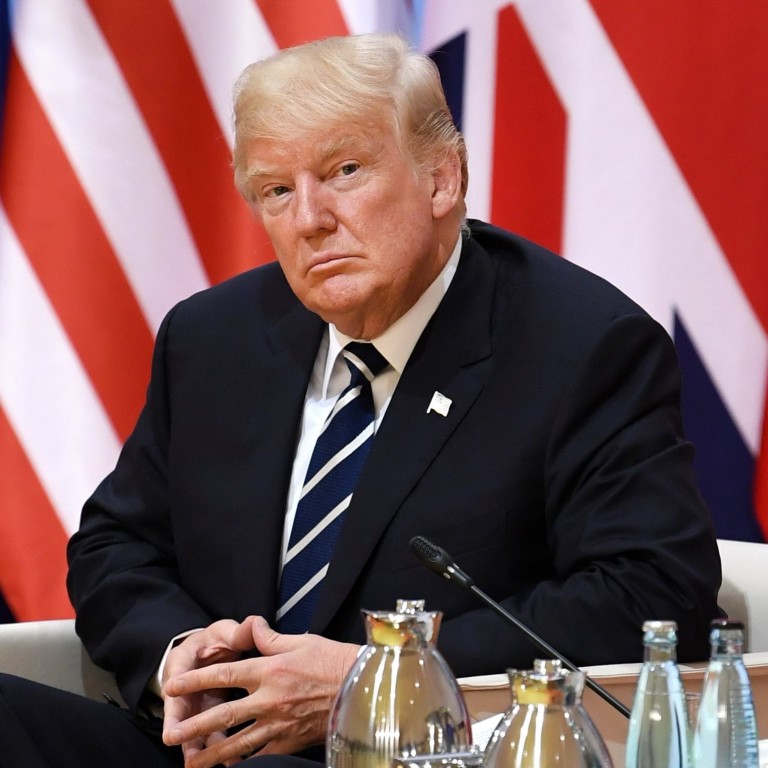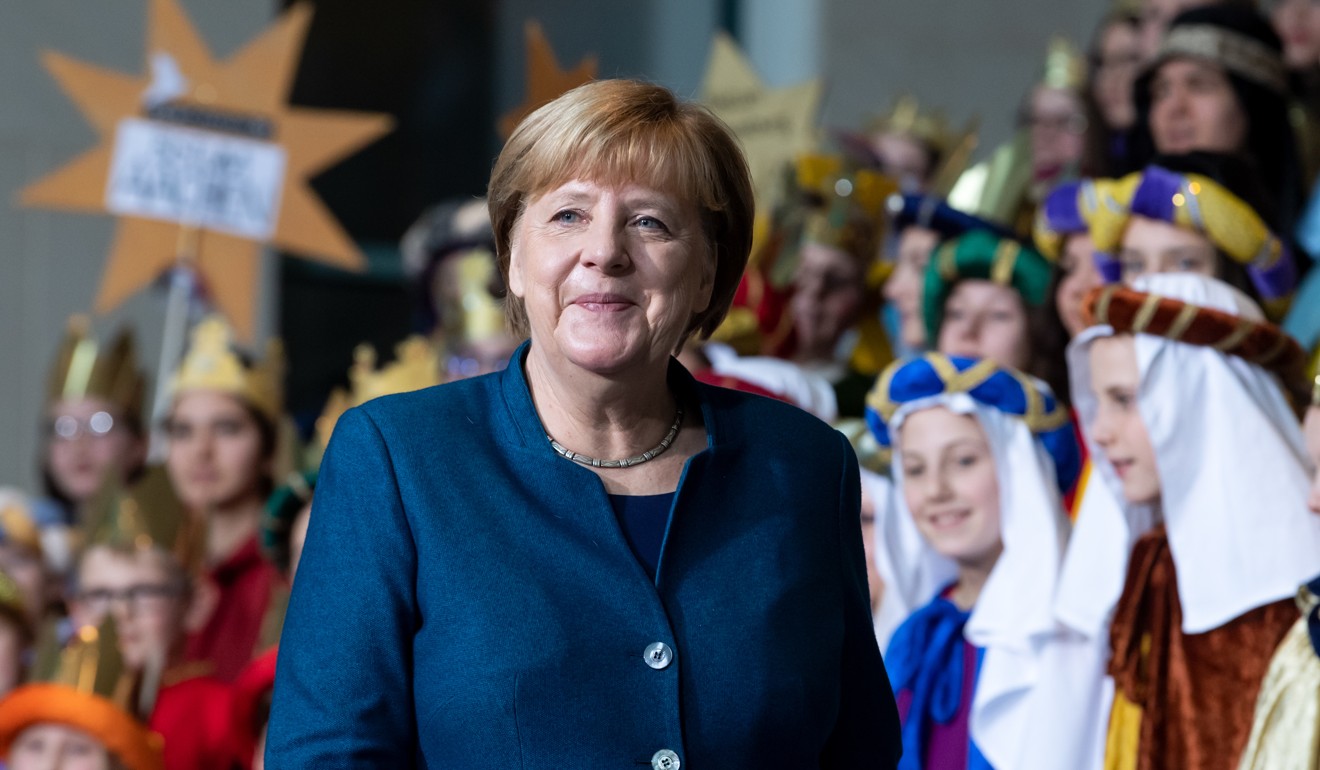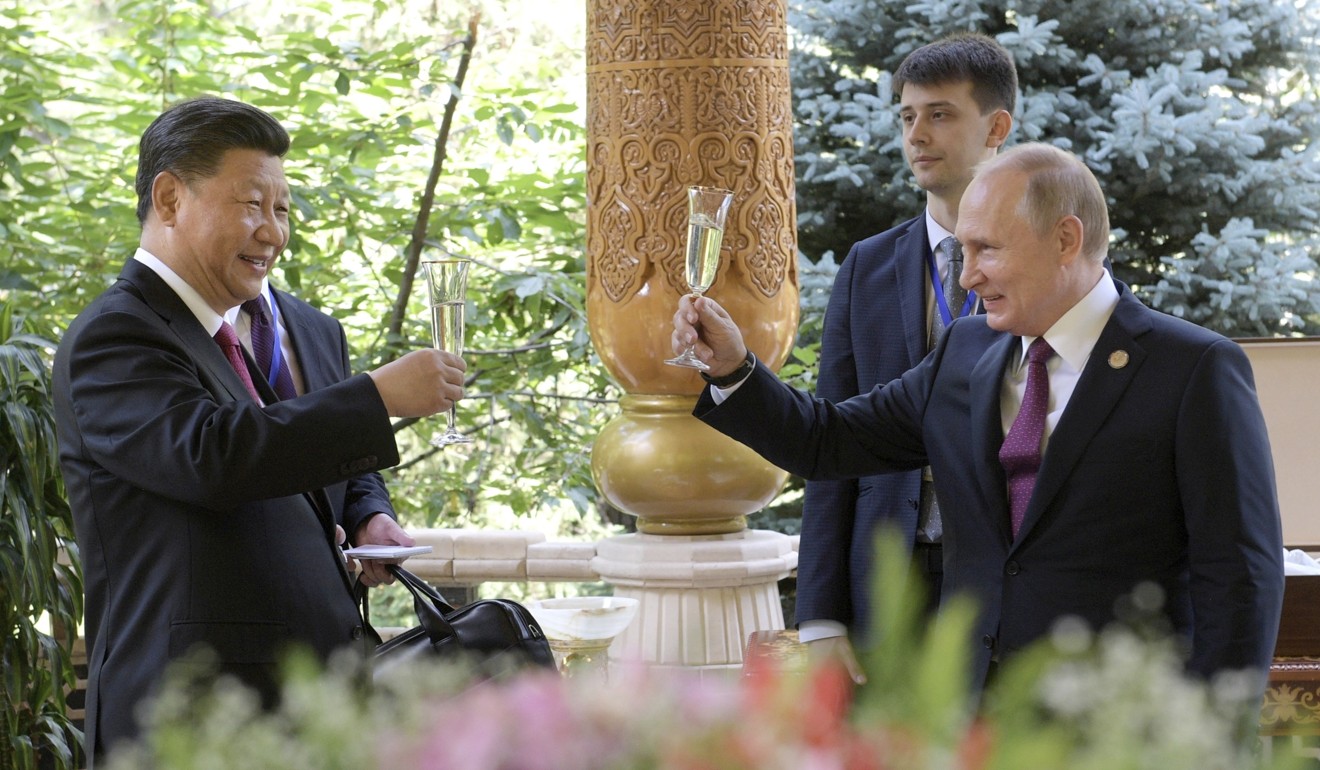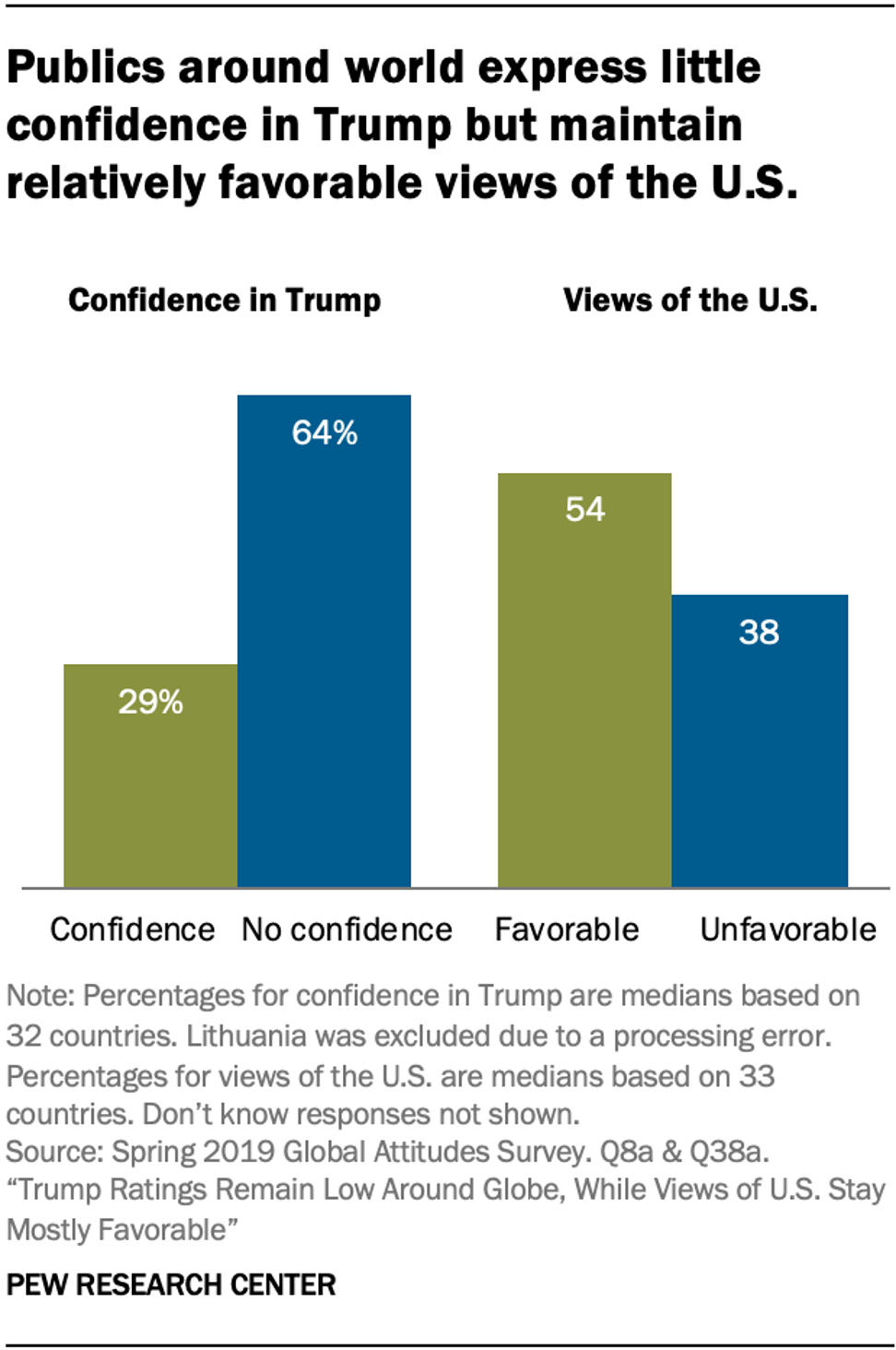
Donald Trump is pulling down America’s reputation around the world, Pew survey finds
- People in 33 countries were asked about five world leaders, and Trump finished last behind Xi and Putin, who also weren’t popular
- The US as a nation still garnered generally positive views with a 54 per cent favourability rating
The bad news for those concerned with America’s standing in the world is that Donald Trump is president. The good news is that the US still enjoys a generally favourable reputation despite having slipped sharply since Barack Obama left office.
Those were the findings of the Pew Research Centre’s latest survey of 33 nations, an annual litmus test of how the US is viewed beyond its shores.
“The overall confidence in the US president is particularly low across the world in countries we surveyed,” said Jacob Poushter, associate director of global attitudes research at Pew, a non-partisan social research firm. “Generally, support for the US has held up, but not necessarily for its president.”
According to the survey of nearly 37,000 people in almost three dozen countries, Trump had the least favourable reputation of five world leaders that Pew asked about, while German Chancellor Angela Merkel enjoyed the most favourable response.
Generally, support for the US has held up, but not necessarily for its president
And while Chinese President Xi Jinping and Russian leader Vladimir Putin were not popular among most respondents, both still earned higher marks than Trump. “Many publics express the least confidence in Trump of any world leader asked about,” the survey said.
Pew interviewed 36,923 people in Europe, Asia, Latin America, Africa, Australia and Canada between mid-May and early October.
In the survey, taken annually since 2002, a median of just 26 per cent of respondents expressed faith in Trump’s ability to make the right decisions on international affairs. That figure fell to around 15 per cent in Germany, Sweden, France, Spain and the Netherlands.
But the US as a nation still garnered generally positive views with a 54 per cent favourability rating among those surveyed. That is in keeping with still positive, if sharply lower, levels of favourability since Trump succeeded Obama.

In 2016, Obama’s last year in office, 74 per cent of those surveyed had a favourable view of the US president, a figure that fell to 23 per cent in 2017, according to Pew data.
“An international reputation takes decades to build up,” said Nicholas Cull, professor of public diplomacy at the University of Southern California. “Because it has had a positive image historically, the US still has a lot in the bank.” But Cull added that a second Trump term could significantly erode the nation’s global standing.
Trump’s overall favourability, 29 per cent, was up slightly from 2018 levels, which Pew attributes in part to the rise of right-wing populist movements in some countries. Countries that saw a higher or a still-strong opinion of Trump in the latest survey included the Philippines, Israel, Kenya, Nigeria and India.
China’s growing economic clout makes Asian neighbours wary, survey shows
Enjoying a positive reputation abroad is about more than just winning a popularity contest, said analysts. So-called soft power, a country’s ability to persuade others to do what it wants without force or coercion, can pay very tangible dividends.
These include having allies who support you on multiple fronts: with important votes at the United Nations and other multilateral organisations; by committing troops for peacekeeping operations or military campaigns that may be unpopular with their citizens; by sharing intelligence; and by favouring your companies in purchases of goods and services.
“Trump is not going to change,” said an expert at a centrist think tank in Washington who declined to be identified given concern that his comments could anger the Trump administration. “So the world is going to have to operate on the basis that this is what we have. Our country brand is not going to be good for a while.”
But he added that it was not all Trump’s fault, saying that eroding relations with Europe preceded the 2016 election.
Trump’s least popular policies among global audiences, according to the survey, include his move to ratchet up tariffs on goods imported to the US, withdrawing from the international climate change agreement, threats to build a wall along the southern border with Mexico and restrictive immigration policies.
While Trump, who has referred to himself as “tariff man”, has targeted China in particular with his hardline trade policies, his aggressive use of import duties has also rankled Germany, France, Brazil, Mexico and Canada, among others.
His most popular policy in the survey, meanwhile, was his decision to start direct negotiations with North Korean leader Kim Jong-un. But even this was greeted tepidly, with 41 per cent of respondents in favour of his approach and 36 per cent opposed.

Wednesday’s release follows another report by Pew last month that focused on China. That study found that China generally enjoys favourable ratings as an economic power, particularly among emerging markets. But a majority of countries viewed China’s military rise negatively, while its neighbours expressed wariness on both counts.
“Global views of China are, on balance, mixed,” said the earlier survey of respondents in 34 countries. “When it comes to alliances, many more name the US as the top country their nation can rely on than China.”
In the latest Pew survey, Xi’s unfavourable rating was 43 per cent and Putin’s 57 per cent, but Trump was below both at 64 per cent. Pew said in addition to China’s mixed global reputation, Xi is also less well-known abroad than his counterparts.


